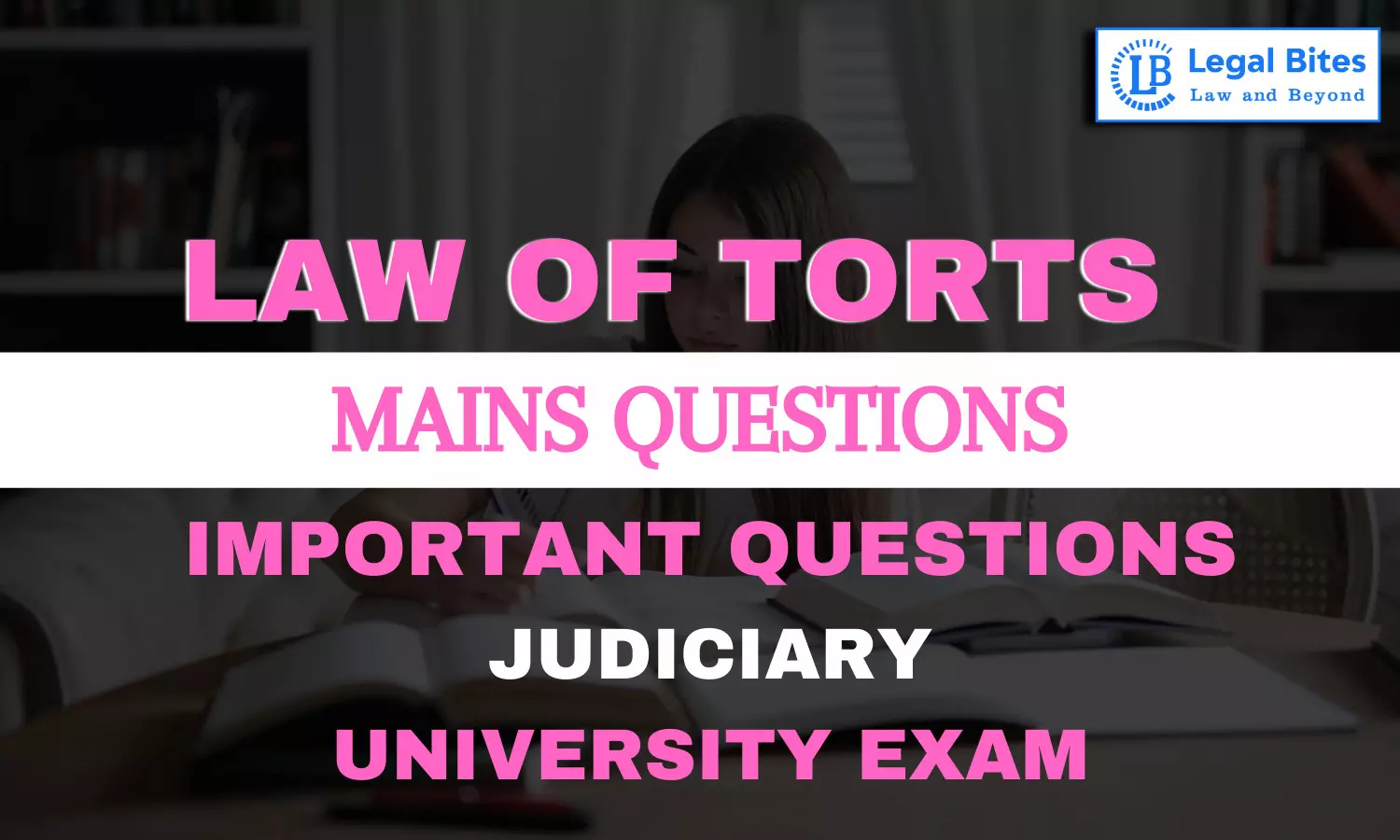Define malicious prosecution. What are its essential ingredients? What must a plaintiff prove for getting success in case of a suit for malicious prosecution? Can a suit of malicious prosecution be filed against the corporation also, if yes, in which circumstances?
Find the question and answer of Law of Torts only on Legal Bites.

Question: Define malicious prosecution. What are its essential ingredients? What must a plaintiff prove for getting success in case of a suit for malicious prosecution? Can a suit of malicious prosecution be filed against the corporation also, if yes, in which circumstances? [UPJS 2013]Find the question and answer of Law of Torts only on Legal Bites. [Define malicious prosecution. What are its essential ingredients? What must a plaintiff prove for getting success in case of a suit for...
Question: Define malicious prosecution. What are its essential ingredients? What must a plaintiff prove for getting success in case of a suit for malicious prosecution? Can a suit of malicious prosecution be filed against the corporation also, if yes, in which circumstances? [UPJS 2013]
Find the question and answer of Law of Torts only on Legal Bites. [Define malicious prosecution. What are its essential ingredients? What must a plaintiff prove for getting success in case of a suit for malicious prosecution? Can a suit of malicious prosecution be filed against the corporation also, if yes, in which circumstances?]
Answer
Malicious prosecution is a tort in which a plaintiff claims that they have been wrongfully prosecuted by the defendant, who initiated or continued a criminal or civil legal proceeding against them without probable cause or with malicious intent. In other words, the plaintiff is alleging that the defendant has abused the legal process in order to harm the plaintiff.
In order to establish a claim for malicious prosecution, the plaintiff must prove the following elements:
1. The defendant initiated or continued a legal proceeding against the plaintiff.
2. The legal proceeding ended in the plaintiff's favour.
3. The defendant lacked probable cause to initiate or continue the legal proceeding.
4. The defendant acted with malice, meaning that they had an improper motive or purpose in initiating or continuing the legal proceeding.
5. The plaintiff suffered damages as a result of the legal proceeding, such as lost wages or damage to their reputation.
6. If the plaintiff is able to prove all of these elements, they may be entitled to damages, including compensation for their losses and any harm caused to their reputation.
It is important to note that the mere fact that a legal proceeding was unsuccessful or resulted in an acquittal does not necessarily mean that the defendant acted with malice or lacked probable cause. The plaintiff must provide evidence that the defendant acted with improper motives or without sufficient evidence to support their case.
Malicious prosecution is a serious allegation that can have significant consequences for the defendant, including potential liability for damages and harm to their reputation. Therefore, it is important for individuals and organizations to carefully consider their motives and the evidence available before initiating or continuing legal proceedings.
As noted in Mohanlal Raghunath Prasad v. Diwan Lachhman Singh, AIR 1960 MP 397, in a suit for malicious prosecution, the plaintiff must prove three things:
- The plaintiff was prosecuted by the defendant and the prosecution terminated in the plaintiff's favour.
- The defendant was actuated by malice, and,
- The defendant acted without reasonable and probable cause.
Unless the plaintiff succeeds in proving all the above three points, he cannot succeed. If he fails in establishing any of the points, no decree can be passed in his favour.
Suit of malicious prosecution against the Corporation:
Yes, a suit for malicious prosecution can be filed against a corporation in certain circumstances.
A corporation can be held liable for malicious prosecution if it authorized, directed, or ratified the legal proceedings brought against the plaintiff without probable cause or with malice. For example, if a corporation's employees or agents file a lawsuit against the plaintiff without a reasonable basis for doing so, and the corporation knew or should have known about the lack of basis, the corporation can be held liable for malicious prosecution.
Additionally, if the corporation is the plaintiff in the legal proceedings, it can be held liable for malicious prosecution if it brought the case without probable cause or with malice. In this case, the corporation may be liable for any damages caused by the legal proceedings, such as legal fees or reputational harm.

Mayank Shekhar
Mayank is an alumnus of the prestigious Faculty of Law, Delhi University. Under his leadership, Legal Bites has been researching and developing resources through blogging, educational resources, competitions, and seminars.
